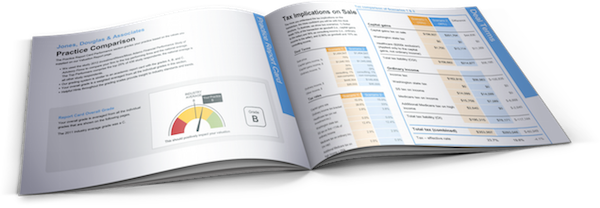Prepare Your
Business For Sale
November 16, 2015 ● David Grau Jr.
Depending on what source you look at, the average age of an advisor in the financial services industry is anywhere from 51-57 years old. While that would typically leave plenty of time until the average age of retirement (age 62), the average age of an advisor selling their business is much younger, most often occurring near age 59. This is due in large part to the long term seller involvement that is ideal in the sale of a professional services business, ranging from as low as 12 months to as long as 5 years. While you may not sell your business, you will leave this industry – planned or unplanned. The better prepared you are for your eventual transition, the happier your clients will be with the process, and the more you are likely to get out of it (financially and emotionally).

The following recommendations will help position your business to obtain the most value and attract the best successor:
-
Know your timeline. (Before a client asks you how much longer you’ll be in the business!)
- When would you like to be able to slow down? How long do you think it will take to transition 100% of your client base?
- When would you like to be able to fully retire? Or, are you looking to remain part-time?
- Assemble your team. Before you start the process of selling your business, decide what resources you are going to rely on throughout the process. The typical parts of your transition team will include a knowledgeable industry consultant, tax and legal counsel. To find your successor, decide whether you want to network on your own, use a do-it-yourself online listing system, or work with a firm like Succession Resource Group (SRG) as your advocate.
- If you value your business, value your business. Have your business valued before a buyer does. Valuing your business in advance of a sale will ensure you have the ability to negotiate with full information when the time comes (or will allow an advocate like SRG to work on your behalf), that you have identified key strengths and weaknesses, and know what reasonable value and deal terms are for a business like yours.
- Standardize and document your processes. The best transitions are ones where no one knows a transition took place. Practices that sell at a premium are often those that are institutionalized and not solely dependent on any one person. Institutionalizing your processes takes time, but will provide greater client continuity and afford you the widest array of options when you are ready to sell your business. Ensure your processes are well documented, that you have consistent client contact, and that everything is carefully recorded in your CRM system.
-
Focus on the bottom line.
Most deals in the financial services industry result in a buyer consolidating a seller’s business into their own, making profitability less of a focal point than many other businesses. However, running a “clean” business on paper the last three to five years before a sale will make the business more attractive and provide a faster due diligence process. Specifically:
- Focus on eliminating as many “owner discretionary” expenses from your P&L.
- Eliminate/renegotiate referral fees that go on into perpetuity.
- Make sure employee costs are reasonable. You never want to significantly over pay for an employee and have them pivotal to the transition.
- Avoid signing long-term leases or other related obligations a buyer would have to assume.
- Quantify future potential. A large part of the value of your business is based on the projected growth. Be able to show a buyer where past growth has come from, whether it is sustainable/transferable, and where future growth will come from (for example – client 401(k) rollovers, stock options, inheritances, businesses that might sell, etc.).
- Don’t keep it a secret. Start talking to your clients and staff about your plan for the future of the business. For advisors that have a client advisory board, find out what they are looking for in your successor and make sure they know that the process will be well planned, carefully choreographed, and result in a very gradual transition over time.
- Be prepared. During every sale, there will be a period of due diligence where a purchaser reviews everything related to the business. This will likely include financials, lease agreements, client communication, employment items, compliance history, etc. Before you sell, take the time to put together a due diligence binder of everything a buyer would ask for. This will streamline the process and allow you to identify items you’d like to adjust before someone else views it.
- Curb Appeal. Take the time to plan, understand the market, clean the place up before a showing, and do a bit of remodeling in areas buyers are likely to focus. The better prepared you are and the more “curb appeal” your business has, the more valuable your business will be and the smoother the transition you will have – which is good for everyone involved.
For more ways to help your business, visit www.3xEquity.com
